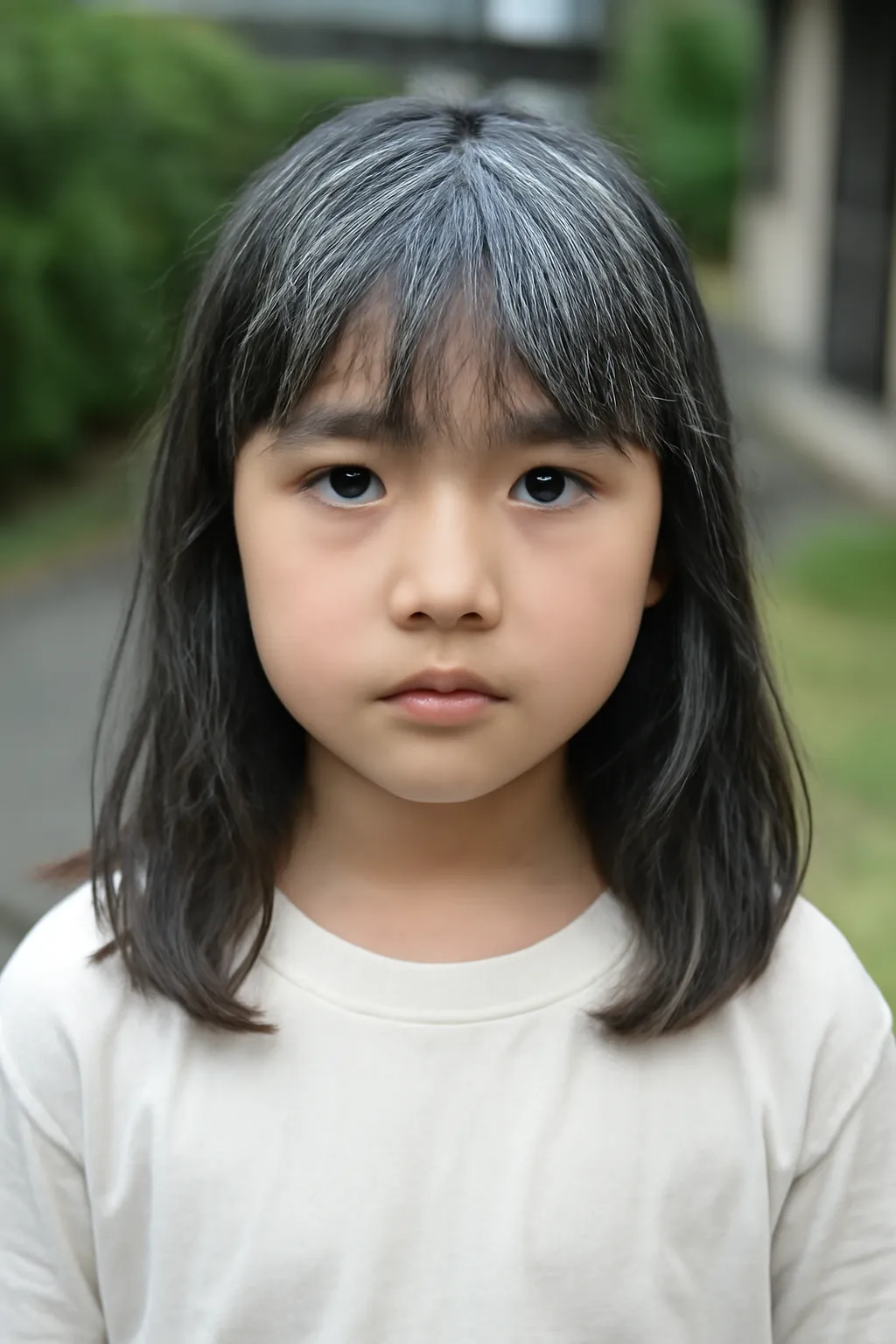Have you ever wondered why some people start seeing gray hair even at a young age? It’s a natural phenomenon, but when it happens early, it raises some interesting questions. Gray hair is often associated with aging, but what are the underlying causes that lead to this shift in hair color? In this article, we will explore the various factors that contribute to gray hair, with a particular focus on its early onset, which can even appear in children.
Are you noticing gray hairs earlier than expected? Wondering why some kids have gray hair too? Discover the surprising causes behind premature graying and what it could mean for your health.
The Science of Hair Color: Understanding the Basics
Before we dive into the causes of gray hair, it’s important to understand the science behind how hair color is determined. Hair gets its color from melanin, the same pigment responsible for skin and eye color. As we age, the production of melanin decreases, which leads to a gradual transition from dark hair to gray or white.
For many, the process of turning gray begins in their 30s or 40s, but for some, it can occur much earlier. While aging is the most common cause of gray hair, there are several other factors that can contribute to this phenomenon.
Genetic Factors: The Role of Family History
One of the most significant contributors to gray hair is genetics. If your parents or grandparents started graying at an early age, there’s a high chance that you might experience the same thing. A study published in the Journal of Investigative Dermatology showed that genes play a major role in determining when your hair will begin to lose its color. These genetic factors are inherited, and certain gene mutations can speed up the process of melanin loss, leading to early graying.
Interestingly, genetic factors can also dictate how much gray hair will appear, as some individuals are predisposed to having more gray strands in certain areas of their head earlier in life.
Stress and its Impact on Hair Color
You’ve probably heard the saying, “Stress causes gray hair.” While it might sound like an exaggeration, there is some truth to this. Prolonged or extreme stress can contribute to premature graying. Stress releases a hormone called cortisol, which, in high levels, can damage the melanocytes (cells responsible for melanin production) in your hair follicles.
A 2009 study by researchers at the University of Utah suggested that stress could accelerate the process of graying, although the exact mechanism is still not fully understood. This could explain why some individuals experience sudden patches of gray during particularly stressful periods.
Can Gray Hair Appear in Children? Understanding the Causes
While it’s most common for adults to start graying as they age, some children also experience premature gray hair. This can be caused by a variety of factors beyond genetics. Here’s what you need to know:
Medical Conditions Linked to Gray Hair in Children
In rare cases, gray hair in children can be linked to underlying medical conditions. Vitiligo, an autoimmune disorder that causes loss of pigment in the skin, can also affect the hair. This condition results in patches of white or gray hair in areas where the melanocytes have been destroyed. Similarly, conditions like Werner syndrome (a genetic disorder that causes premature aging) can also result in the early onset of gray hair.
Another condition, called Albinism, which affects the production of melanin in the body, can lead to gray or very light-colored hair from a young age. In children with Albinism, their hair lacks the normal pigmentation, resulting in a whitish or grayish appearance.
Nutritional Deficiencies and Premature Graying
In some cases, children may develop gray hair due to nutritional deficiencies, especially a lack of B vitamins, iron, or copper. These nutrients are essential for healthy hair growth and pigmentation. If a child is not getting enough of these nutrients, it could result in the early onset of gray hair.
In fact, researchers have found that a deficiency in vitamin B12 can cause premature graying, even in children. Other factors, such as poor diet, dehydration, or malnutrition, can also contribute to the development of gray hair at a young age.
The Influence of Hair Treatments and Styling in Childhood
While genetics and medical conditions are the primary causes of gray hair, external factors like hair treatments and styling practices can also play a role. For example, elementary school students who experiment with hair dyeing or heavy styling may put unnecessary stress on their hair, potentially leading to damage and premature graying.
Elementary School Hair Dyeing: A Growing Trend
Hair dyeing has become increasingly popular among younger children, including elementary school students. While this trend may be a fun way for kids to express themselves, frequent use of harsh chemicals in hair dyes can damage the hair follicles and affect melanin production. This could lead to hair turning gray earlier than expected.
In some cases, children may start experimenting with dyeing their hair even before they enter middle school, exposing their hair to chemicals that can damage the natural structure of the hair shaft and inhibit the production of melanin.
Styling Practices and Hair Damage
Constant use of heat styling tools, such as flat irons, curling irons, and blow dryers, can also weaken the hair over time. When children use these tools frequently, especially without proper care, they can cause the hair to become brittle, resulting in the premature appearance of gray strands. Over-styling can also lead to thinning hair, making it appear grayer than it actually is.
Conclusion: Embracing the Natural Process
Gray hair is a natural part of life, and its appearance is influenced by many factors, from genetics to lifestyle choices. While some individuals may start graying prematurely, others may enjoy the natural beauty of their hair without the worry of early graying.
Understanding the underlying causes of gray hair, especially in younger individuals, can provide valuable insights into how we care for our hair and health. Whether it’s due to stress, genetics, or hair treatments, embracing gray hair as a sign of wisdom and individuality can help us navigate this inevitable process with confidence.
By staying healthy, managing stress, and avoiding unnecessary damage to the hair, we can reduce the impact of premature graying and continue to feel good about the hair we have.






